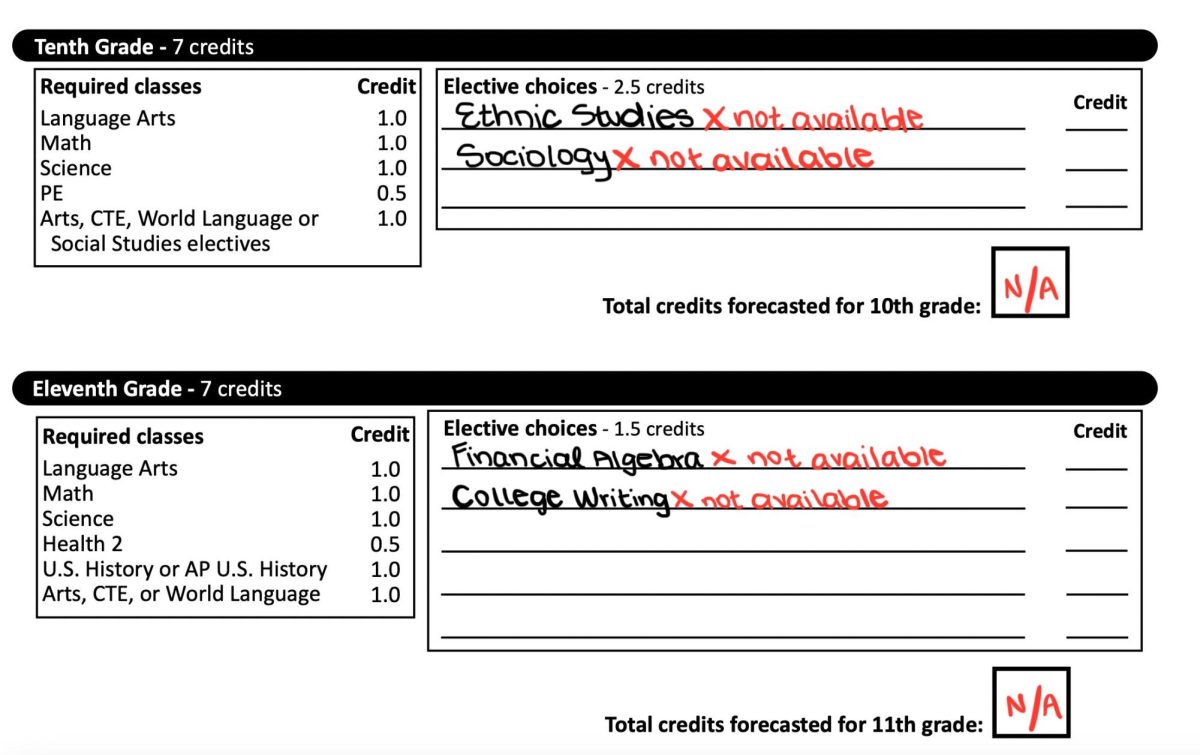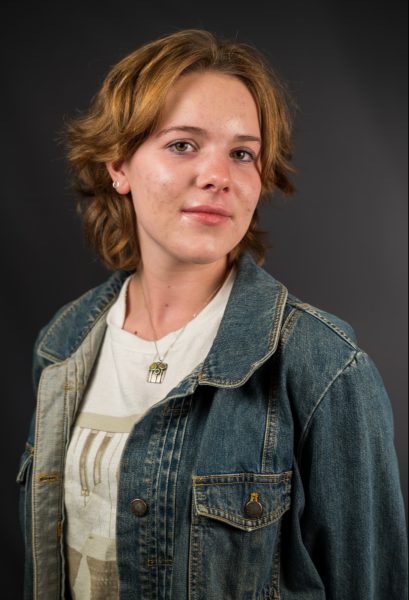Looking forward to the 2024-25 school year, several progressive elective courses are disappearing from Summit, a process directly negating the hard work that has been dedicated to modernizing the nation’s youth education system.
Next year in California, it will be mandatory for high school students to take a semester-long Ethnic Studies course for them to obtain their high school diploma. The model curriculum, introduced in 2019, has undergone major changes due to public feedback and the revised course will be taught statewide to nearly 1.7 million students.
Following suit with California, ethnic studies courses have been authorized or required in seven states, as well as the District of Columbia. Among these states is Oregon, which made Ethnic Studies available for school district implementation in 2021. Sadly, this doesn’t mean the subject is getting the attention it deserves.
While the Bend-La Pine School District adopted state standards for its curriculum guide, a semester-long Ethnic Studies class only found its way into Summit. The same course was never established at the other local high schools: Bend High, Mountain View, La Pine and Caldera. Though this could be considered a partial success, Ethnic Studies is being removed from Summit forecasting sheets for the 2024-25 school year.
While arguably one of the most notable, Ethnic Studies isn’t the only one. Summit is saying goodbye to several other courses next year, including College Writing, Sociology, and Financial Algebra, largely due to a loss of staff. Summit social studies teacher Marni Spitz explained that offered courses are directly correlated with staff numbers.
“Because [courses like Ethnic Studies] are an elective and not a required class, we can fix the problem if we have enough teachers, but unfortunately we don’t,” said Spitz, speaking about how the courses Summit is losing are at a disadvantage since they’re only being managed by one teacher.
Ethnic studies, defined by Oregon state standards as a course to educate students in non-European and LGBTQ+ histories, works to give students a deeper understanding of the danger of oppression and those that are different from themselves. The Ethnic Studies course at Summit was originally introduced by Spitz, who emphasized how vital it is to offer a course covering such diverse perspectives in a community like Bend.
“Living in the area we do, many students don’t get those in-person experiences of interacting with people from different backgrounds and cultures,” Spitz explained. “Ethnic Studies provides classroom-based insights on these things in order to make up for the diversity we lack face to face.”
Spitz also felt passionately about the environment that Ethnic Studies discussions fostered, as students were able to explore the often complex and difficult concepts covered throughout the course together.
While it’s upsetting to see our options lessen over time, it’s understandable that the school is simply working with the hand it’s been dealt. Students are more focused on the fact that such valuable courses have been selected to be scrapped for the coming years.
Namely Ethnic Studies and Financial Algebra. While students spend the majority of their high school career attending core classes (math, science, English and history), we are given small opportunities here and there to widen our understanding beyond courses meant to prepare us for college.
“It’s very important to maintain a variety of elective classes for students to take because these classes can provide students with different opinions, skills, information and opportunities,” said Summit senior Ramsey Starr, emphasizing the importance of allowing students to grow.
Starr is currently taking Financial Algebra and explained that the course offered information on how to make financial decisions after high school. The class familiarizes students (mainly juniors and seniors) with topics like college affordability, investing in the stock market and taking out loans for a car or mortgage. Many students like Starr find the class worthwhile, as it has helped teenagers feel more confident about how to handle their money. Oppositely, those who haven’t opted to take Financial Algebra have expressed feeling lost financially.
“The little that I’ve learned about finances is from my parents when I’ve asked them, but school hasn’t taught me anything in that range,” said Summit senior Sophie Hansen.
Summit’s Kathie Quick, head of the math department, used to spearhead Financial Algebra before math teacher Jake Oelrich took over. She expressed that she felt that the course was the most important class that could be taught to students.
“It was just so real and hands-on and focused on things like buying and financing a car, [paying for] college or not going to college, what kind of job can you get with or without and how does that play out for rent versus a mortgage and how to do your taxes,” Quick said. Financial Algebra was one of the course options to complete the required third year of math and quickly became a favorite among juniors and seniors due to its applicability.
I have taken both Ethnic Studies and Financial Algebra during my time as a Summit student, and they have undoubtedly been some of the most relevant classes I’ve attended. For the first time, a math class has felt helpful to my life outside education. For the first time, a history class has felt relevant to my future, and the futures of those around me. These courses have assisted me in figuring out what my life as an adult is going to look like.
Through these courses, I’ve learned what it means to be something other than a student or an employee. Financial Algebra has aided me in feeling like I can manage my adult life. Ethnic Studies widened my perspective, teaching me how to be a friend, ally, citizen and partner.
Everyone wants the nation’s youth to know how to be successful leaders, innovative thinkers, intelligent contributors and hard workers… but isn’t it important that we also know how to be responsible? Isn’t it important that we also know how to be kind?





































